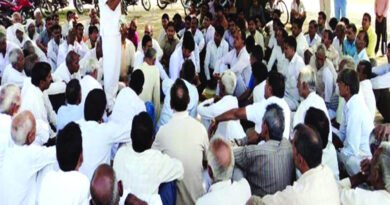New friends
Nitish has joined hands with RJD and Congress, but it remains to be seen if it can have national ramifications
Soon after parting ways with the Bharatiya Janata Party (for the second time), Nitish Kumar resigned as Bihar Chief Minister. The resignation, however, is just a brief halt; he will soon take charge, holding the same office, but this time in alliance with the BJP’s rival party, the RJD. His relations with both parties have been governed strictly by the imperatives of realpolitik; pretexts have been found, and sophistry employed, to befriend one party or the other. The bottom-line, however, has remained unchanged: Chief Ministership of Bihar. This time, the pretext is RCP Singh, a former leader from Kumar’s JD(U), who has been accused of being Union Home Minister Amit Shah’s man. The JD(U) accused Singh of corruption, leading to his ouster from the party. But tensions between Kumar and the BJP have been growing for some time. Earlier there was Chirag Paswan, son of the later prominent Dalit leader Ram Vilas Paswan. Chirag Paswan’s party contested seats in the 2020 Assembly elections polls wherever JD(U) was fighting. While Chirag Paswan’s party did not gain much, the JD(U) suffered a great deal, with its earlier tally of 70 coming down to below 45. JD(U) president called it the “Chirag model.” And, of course, there is the issue of caste census. This is something the BJP dislikes intensely, seeing in it a ruse to divide Hindu society, which is the potential vote base of the saffron party.
The BJP’s detractors say that breach with the JD(U) was a matter of when, not if; it was part and parcel of the saffron party’s strategy: to weaken its regional allies in states, sow seeds of dissension in them. See what happened in Punjab and Maharashtra, they say. That may be true but it is also a fact that the senior leaders like Sushil Kumar Modi, who played a key role in running the alliance, were sidelined in the last few years. Whatever may be the case, Nitish Kumar joining hands with the RJD and the Congress is not good news for the BJP. A grand alliance in a major state—and that too in the Hindi heartland which is the BJP’s stronghold—may give a badly needed impetus to the disunited, fractious, and confused Opposition. At present, Prime Minister Narendra Modi is the tallest politician in the country, and nobody is even near him. And the BJP election machine is sturdy, well-oiled, and efficacious. But such favourable conditions also induce complacency. So, the BJP has to watch how Opposition politics unfolds. Can Nitish Kumar emerge as a challenger to the BJP in the 2024 general polls? Well, perhaps not as a ‘secular’ challenger, for he has been pally with the BJP for too long to be seen as such. Still, he has experience and the right background (being an OBC) to take on Modi. It is premature to speculate on that possibility, but if that happens, the 2024 elections will become interesting.
Source: The Pioneer




